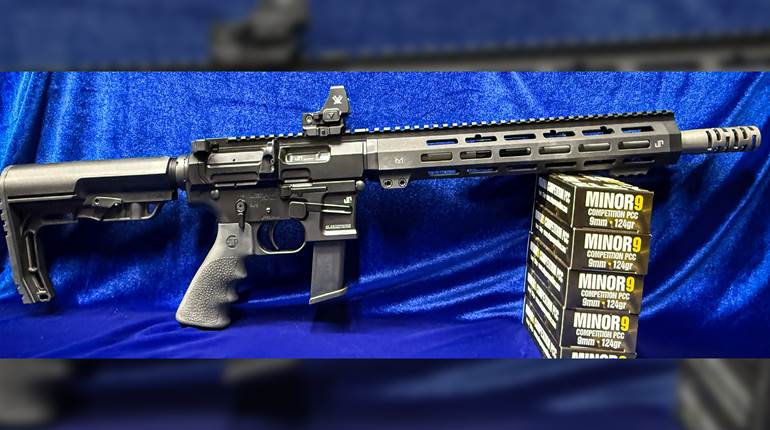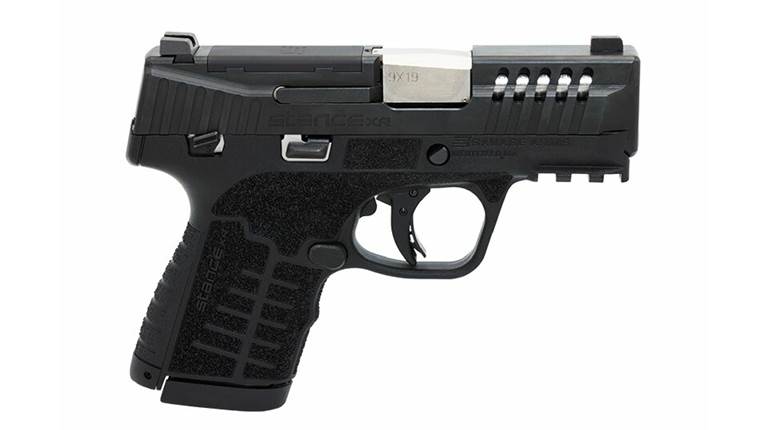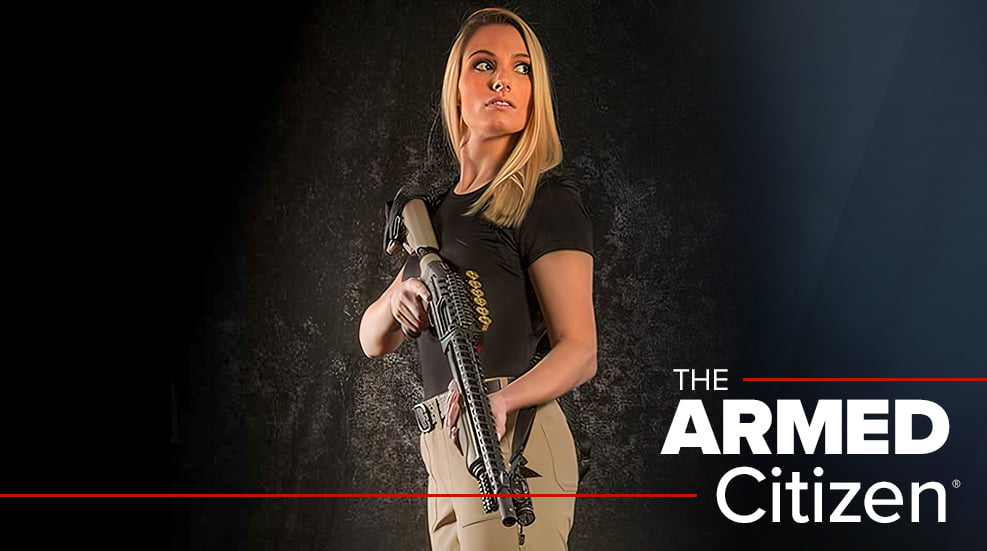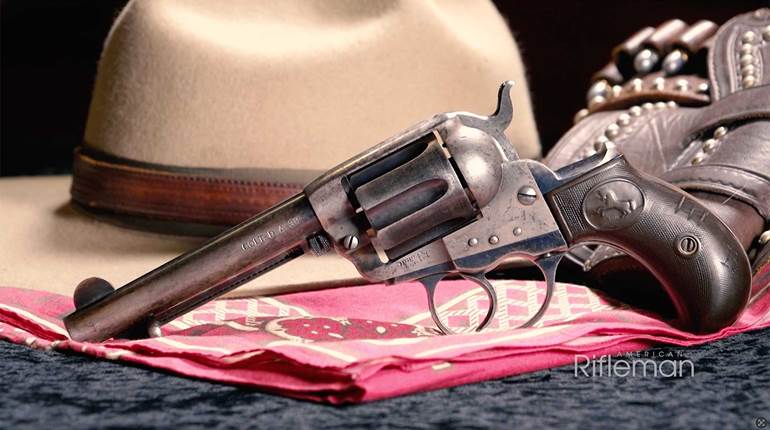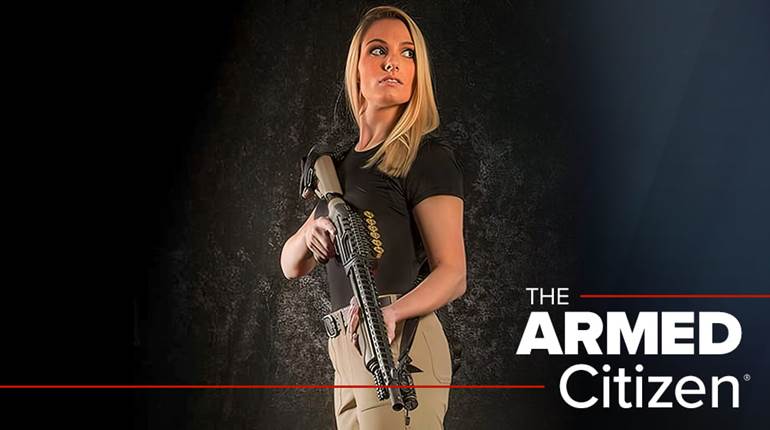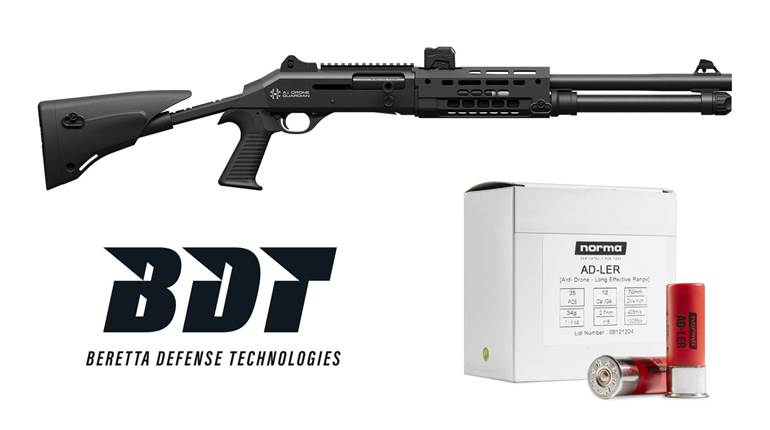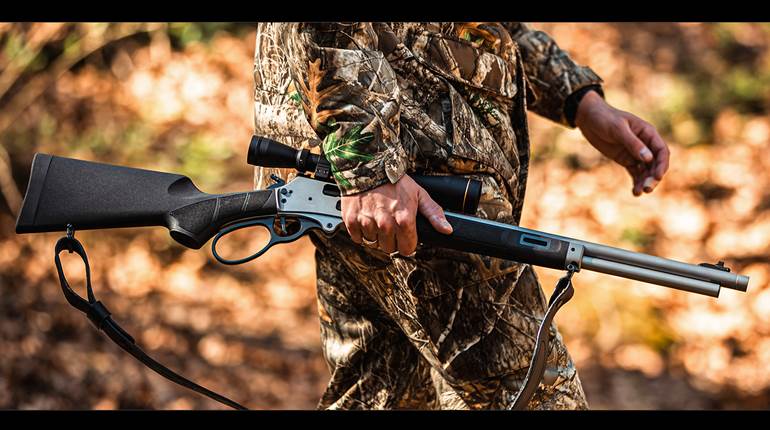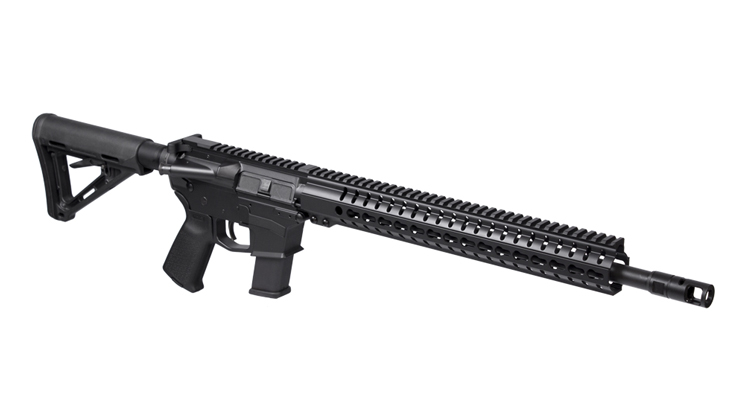
As we've seen with previous offerings, including the Mk47 Mutant AKM and MkW Anvil XBE rifles, CMMG Inc. is a company that refuses to just keep cranking out run-of-the-mill AR platforms. Instead, the CMMG team is constantly looking for innovative ways to improve the platform while maintaining the AR form and function American shooting enthusiasts prefer.
Recently there's been a surge in interest regarding pistol-caliber carbines (PCC). Folks are discovering how fun and affordable these guns can be, especially the AR models with their familiar controls and modular design.
The actions of pistol caliber ARs differ from their compatriots in that they are neither gas-impingement nor piston driven. Due to the relatively low operating pressures of the straight-walled 9 mm cartridge (when compared to bottle-necked rifle rounds) most 9 mm AR rifles use a blow-back operated action. A simplified bolt assembly is held in place by a combination of its weight and the buffer assembly spring until pushed back by the force of the chambered 9 mm cartridge being fired. While blow-back operated ARs have proved to be reliable and produce mild to moderate levels of felt recoil, they're still a bit jerky. The snappiness of the unrestricted bolt's cycling, in turn, contributes to muzzle rise. This jerky attitude becomes more pronounced when a larger caliber is used, like the .45 ACP.
Although few folks would consider the handling properties of PCC ARs a deal breaker, the folks at CMMG found a way to reduce the recoil and muzzle rise with the new Radial Delayed Blowback (RDB) action design incorporated into their new Guard line of carbines and pistols.

When I pivoted open a Guard rifle for the first time I thought there had been some sort of mix up in the bolt carrier group (BCG). What I expected to see was a typical PCC bolt, like those I've worked with in the past, that have no rotating bolt (Left). Rather, the flat-faced portion of the BCG supports a firing pin and an extractor. The CMMG Guard bolt (Right) is fitted with what initially appears to be a rotating bolt head like those found in gas-impingement operated rifles.

However, the CMMG bolt head (left) is not quite like the mil-spec gas impingement 5.56 NATO bolt either (right). A closer inspection reveals locking lugs that have been cut at an angle, or chamfered if you prefer, and the bolt is supported by a spring. In comparison, lugs of the 5.56 model are squared off and there is no spring inside the BCG.

This spring-loaded specialized bolt works in conjunction with a few other internal modifications to the BCG and barrel extension. With the action closed, the rotating bolt head is locked into the barrel extension. When the cartridge is ignited, it presses the BCG reward. The chamfered bolt lugs force the bolt to rotate as it moves towards the carrier. This rotation of the bolt causes the cam pin to press against the carrier, forcing the carrier rearward. Once the bolt is fully unlocked from the barrel extension, the BCG cycles in the same manner as a typical straight-blowback BCG.


In order to get a feel for how well the RDB action works, CMMG sent two of the 16.1” barrel rifles for testing: The Guard MkG DRB is chambered in .45 ACP and the Guard MkGs DRB2 is chambered in 9 mm. The .45 ACP version tested had the standard matte black finish while the 9 mm was treated to a Stealth Gray Cerakote finish (available for an added $150). Otherwise, the two Guard rifles share most of the same features.

The receiver sets are milled from billets of 7075-T6 aluminum. The lower has an integral trigger guard and is designed to accept the common and affordable Glock pistol magazines (G21 for the .45 ACP and G17 for the 9 mm). The flat top upper sports a forward assist and a dust cover, two features some AR companies choose to omit these days. Most of the controls, including the charging handle, bolt catch and left side safety selector are mil-spec. The exception to this is the right-side magazine release which is a CMMG design and conveniently oversized.

Customers have a choice of two factory installed trigger groups. The CMMG better-than-mil-spec group provides a 6 lbs. 1 oz. (as tested in the .45 ACP model) single-stage trigger pull. It behaves like a standard mil-spec trigger group but with a much cleaner, crisper feel. The 9 mm rifle arrived with the Geissele Automatics Super Semi-Automatic (SSA) two-stage trigger group upgrade. After a slight take up, this trigger breaks cleanly with 4 lbs. 7 oz. of trigger pull which contributed to the 9 mm rifle printing tighter 5-shot groups than the .45 ACP model.

The medium taper 4140CM SBN steel barrels are threaded and fitted with CMMG's SV Brake to reduce muzzle rise even more. Both rifles were fitted with CMMG's in-house 14" long free-float RKM14 handguards featuring a full-length integral top rail and Key Mod accessory slots at the 3-, 6- and 9-o'clock positions. The polymer furniture provided by Magpul includes a mil-spec 6-position CTR shoulder stock with rubber butt pad and a MOE pistol grip with storage compartment.


For those who wish to attach a sound suppressor, CMMG offers weight kits that can be used to tune the weight of the BCG for reliable operation with sub-sonic ammunition.

Both rifles demonstrated an exceptionally low level of felt recoil and muzzle rise thanks to the modified actions and muzzle brakes. Although the RDB was originally intended as a solution for managing the beefier .45 ACP cartridge, the system provides tangible benefits for the 9 mm as well. If asked which of these two soft shooting rifles has the lowest level of felt recoil, I would have to say the .45 ACP by just a smidgen or two. However, the .45 ACP Guard is 1 lb. 1 oz. heavier than the 9 mm version, which probably makes the difference in the kick department. Both rifles demonstrated top-grade levels of fit and finish from stem to stern and they ran reliably with all the varieties of ammunition they were fed.

One of the benefits of pumping semi-automatic pistol cartridges through carbine-length barrels is that the bullets go faster. On average, the .45 ACP Guard's barrel increased bullet velocity by 50 to 200 fps. while the 9 mm accelerated rounds by 200 to 350 fps. (when compared to manufacturers’ listed pistol velocities) according to a Lab Radar chronograph. Bench rested formal accuracy testing for both rifles was conducted at 50 yards using a Nikon Black Force 1000 1-4x24 Speedforce scope with a Nikon Black MSR/AR Height 30mm Cantilever scope mount.

The .45 ACP Guard firing Federal Premium's American Eagle 230-gr. Syntec round nose load launched at a 10-shot average of 884-fps. and printed the tightest groups with a best single group of 1.27" and a five group average of 1.37". Black Hills Ammunition's 230-gr. +P jacketed hollow points yielded a velocity average of 1029 fps., a best group of 1.42"and an average of group size of 1.54". The fastest load was the Hornady Critical Defense 185-gr. FTX flying along at 1228 fps. with a best group of 1.21" and an average of 1.43".

The 9 mm Guard launched Aguila Ammunition’s 115-gr. full-metal jacket loads at 1348 fps. with a best group of 1.20" and an average of 1.28". Hornady's Critical Duty 135-gr. Flexlock flew along at 1225-fps. with the tightest group of the bunch at 0.96" and an average of 1.02". The fastest 9mm load of the day was SIG Sauer's Elite Performance 124-gr. V-Crown jacketed hollow points moving right along at 1539 fps. with a best group of 1.03" and an average of 1.09".

The new Guard PCC carbines with CMMG's Radial Delayed Blowback action are yet another series from this company that are hard to put down after tripping the trigger a few times. The only disappointment I had was the lack of an unlimited ammunition supply. Both versions of the Guard, the .45 ACP and 9 mm, have an exceptionally low level of felt recoil making them wholly accessible to shooting enthusiasts of all sizes and experience levels.
Just as increasing the bolt size of the MK 47 Mutant opened the door to the use of larger cartridges in an AR-15 size platform, the development of the RDB action has the potential of introducing more potent cartridges to PCCs including the .450 SMC (a hotter variation of the .45 Super), 10 mm or .50 AE. With this in mind I'm curious to see what CMMG comes up with next. In the meantime, those who are in the market for .45 ACP and 9 mm carbines should put the Guards at the top of the list for consideration.

Specifications
Manufacturer: CMMG Inc.
Model: Guard MkG DRB (45AE57D) with Standard Finish
Action: Radial Delayed Blowback Semi-automatic
Caliber: .45 ACP
Upper Receiver: Milled Billet 7075-T6 Aluminum, Matte Black
Ejection Port Cover: Yes
Forward Assist: Yes
Charging Handle: Mil-spec
Bolt Carrier Group (BCG): radial delayed blowback for Glock magazines
Barrel: Medium Taper, 4140CM SBN steel
Rifling: 1:16” RH
Barrel Length: 16.1”
Grooves: 6
Muzzle Threading: .578-28 TPI
Muzzle Device: CMMG SV brake threaded
Gas Block: N/A
Gas Tube: N/A
Handguard: CMMG RKM14 14" free float, integral Picatinny optics rail, matte black
Handguard Slots: Key Mod
Lower Receiver: Milled Billet 7075-T6 aluminum, matte mlack
Trigger Guard: Integral
Lower Parts: Mil-Spec
Trigger Group: CMMG mil-spec style single-stage
Trigger Pull: 6 lbs. 1 oz. (as tested)
Length of Pull: (LOP): 10.25" to 13.5"
Pistol Grip: Magpul MOE (MAG415)
Buffer Tube: Mil-spec 6-position
Shoulder Stock: Magpul CTR
Sights: None
Magazine: Glock double-stack .45 ACP
Capacity: 13+1 rounds
Overall Length: 36.25” with stock extended
Weight: 6-lbs. 6.8-oz., unloaded with no magazine
Accessories: one magazine, owner's manual
MSRP: $1,399.95 with standard finish, $150 more for Cerakote finish
Manufacturer: CMMG Inc.
Model: Guard MkGs DRB2 (99AE6C2) with Stealth Gray Cerakote finish
Action: radial delayed blowback semi-automatic
Caliber: 9 mm
Upper Receiver: milled billet 7075-T6 aluminum, Stealth Gray Cerakote finish
Ejection Port Cover: Yes
Forward Assist: Yes
Charging Handle: Mil-spec
Bolt Carrier Group (BCG): radial delayed blowback for Glock magazines
Barrel: Medium Taper, 4140CM SBN Steel
Rifling: 1:10” RH
Barrel Length: 16.1”
Grooves: 6
Muzzle Threading: ½-36 TPI
Muzzle Device: CMMG SV brake threaded
Gas Block: N/A
Gas Tube: N/A
Handguard: CMMG RKM14 14" free float, integral Picatinny optics rail, Stealth Gray Cerakote finish
Handguard Slots: key mod
Lower Receiver: milled billet 7075-T6 aluminum, Stealth Gray Cerakote finish
Trigger Guard: integral
Lower Parts: Mil-Spec
Trigger Group: Geissele Automatics Super Semi-Automatic (SSA) two-stage, curved bow
Trigger Pull: 4 lbs. 7 oz. (as tested)
Length of Pull: (LOP): 10.25" to 13.5"
Pistol Grip: Magpul MOE (MAG415)
Buffer Tube: Mil-Spec 6-position
Shoulder Stock: Magpul CTR
Sights: None
Magazine: Glock double-stack 9 mm
Capacity: 33+1 rounds
Overall Length: 36.25” with stock extended
Weight: 5-lbs. 5.8-oz., unloaded with no magazine
Accessories: one magazine, owner's manual
MSRP: $1,599.95 with Standard Black finish, $150 more for Cerakote finish
Optic: Nikon Black Force 1000 1-4x24 Speedforce (#7100076), MSRP $399.99
Mount: Nikon Black MSR/AR Height 30mm Cantilever Mount (#16403) $139.95












